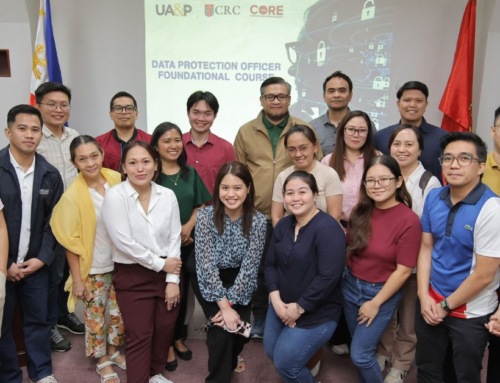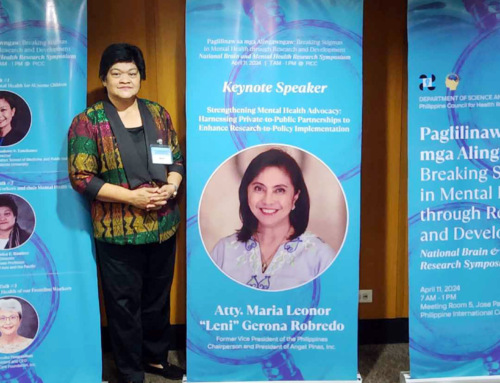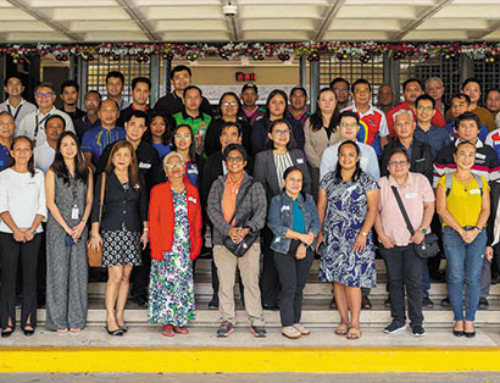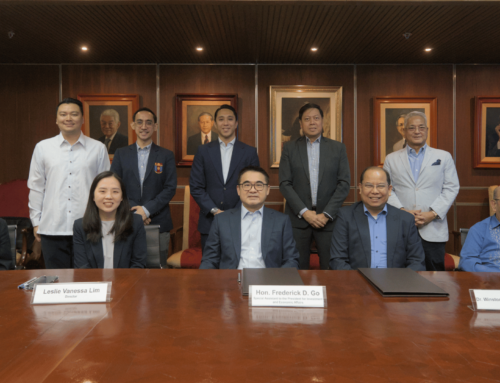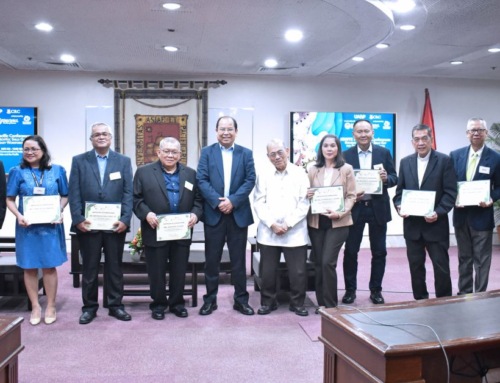We probably know bits and pieces about overseas employment from what we see in the news and social media but we may not fully appreciate the process and the people behind overseas work. This is what this article describes.
Many of those who attempt to apply for work abroad think that they can do so without making concrete plans with their family, lack the necessary preparation and have no clear idea of what awaits us in the destination country. Former DOLE Secretary and POEA Administrator Pat Sto. Tomas once said that for most OFW applicants, when they leave the country for overseas work, they think they are going to America. ‘Abroad’ seems to be a synonym of ‘America.’
The trajectory of migrant work starts with pre-deployment, followed by deployment and employment and ends with return and reintegration. When OFWs come home and there is no work in their community that matches the salary they received abroad, many resort to circular migration. This pattern can extend until retirement.
At every stage of migrant work, there are workers who facilitate the process. There are recruiters who send out undocumented migrant workers who are entrapped in unfortunate series of events that may end in repatriation or human trafficking. But this is not always the case.
If the aspiring overseas workers intend to be employed through legitimate means, they go to licensed recruitment agencies who have foreign recruitment agency partners in the country of work. The No Placement Fee applies to the employment process from passporting, visa, membership in SSS, PhilHealth, OWWA and dorm-type accommodations until flight, with their airfare paid by the employer they have signed contract with. Expenses are equivalent to one month salary, which is later deducted.
At a series of focus group discussions with aspiring overseas workers, I gathered that from filing of application to the time they reach the agency accommodations to wait for departure, their personal out of pocket expense is between Php 1,500 and Php 6,000, depending where they come from in the Philippines. Those who have contracts for Saudi Arabia are given monetary allowance while waiting for their flight. There are also licensed agencies who reimburse the expenses when they reach Manila. The agencies also provide the Pre-employment orientation seminar (PEOS), Pre-deployment Orientation Seminar (PDOS), some trainings that TESDA can give, and financial literacy session.
In Government to government employment with selected countries, the Philippine Overseas Employment Agency (POEA) takes care of the whole process. While No Placement Fee is observed, the applicant shoulders part of the airfare (POEA 2016).
When they reach their country of work, they are met by the foreign recruitment agency and after orientation, they are brought to their employers and monitored regularly. Their families are also given status updates. While this is the standard operating procedure (SOP), there are also unpredicted incidents and cases, which are handled by the agency’s welfare desk officers and officials. They help the worker write up their narrative cases and can liaison between the worker and offices abroad and locally, coordinate legal matters, initiate negotiations and / or appeals, as needed. In such cases, the agency shoulders the expenses. As the OFWs are members of the Overseas Workers Welfare Administration (OWWA), they can avail of the long list of members’ benefits.
When there are health problems during overseas work, the OFWs can use the health insurance provided by the recruitment agency or their employer, or use pay for their own and then reimburse those that can be covered by PhilHealth.
During employment, the OFWs send money. Today, sending money is no longer a big problem. There are remittance centers and agents that facilitate money transfer. The money transfer operators that I have visited abroad are not strictly business hubs. Pinoys are allowed to sit and watch Filipino television shows and enjoy the unlimited coffee and regular supply of ice candy when the weather is hot and lugao during winter.
At return and reintegration, the migrant workers are also not on their own. Return may be voluntary, end of contract or repatriation. Repatriation cases may be related to medical, political conflict, or abuses of varied forms. Whatever the case, there are workers who facilitate return and reintegration. Government agencies such as DOLE, OWWA, DOH, DSWD, NLRC, in their own capacities and mandate, perform their respective roles as needed by the returning migrant worker. There are success stories of assistance but there are also problematic situations due to lack of budget, personnel, facilities and effective coordination. Unfortunately, these are the cases that we see about in the news and posted in social media.
Reintegration process brings together more people and agencies to assist the former migrant worker: the NRCO, local government unit, DTI and TESDA, NGOs, religion organizations and private associations. There are requirements and processes involved before availment. There are few returnees who use financial business for business capital or to expand existing business. However, the unexpected may come: the financial assistance is used to apply for work abroad.
The myriad process of migrant work therefore, involves many people, public and private agencies, local and foreign offices that operate in sync towards the welfare and protection of our OFWs.
———————————————————–———————————————————–——————————
Learn more about CRC’s contributions in Migration and Overseas Filipino Work. In this field, CRC has brought about in-depth insight into the lives of the millions Filipino migrant workers whose contributions make a sizeable chunk of the Philippine economy – from their education and recruitment in the Philippines to their concerns and life strategies while working overseas, to their successful reintegration upon returning to the country.
The Bank of the Philippine Islands (BPI) Foundation, Inc., established the BPI Professorial Chair for Migration and Overseas Filipino Work (MOFW) on February 3, 2014. For years, the holder of the professorial chair has been undertaking intensive research on migration and development to guide policy makers, and publish teaching resource materials on the integration of migration into the K-12 Basic Education Curriculum subjects.
To find out more about CRC, send an email to [email protected], or message +639054280727, or follow us on LinkedIn. You can also find us on Facebook.

